Peonies "Raspberry": characteristics, features of planting and care
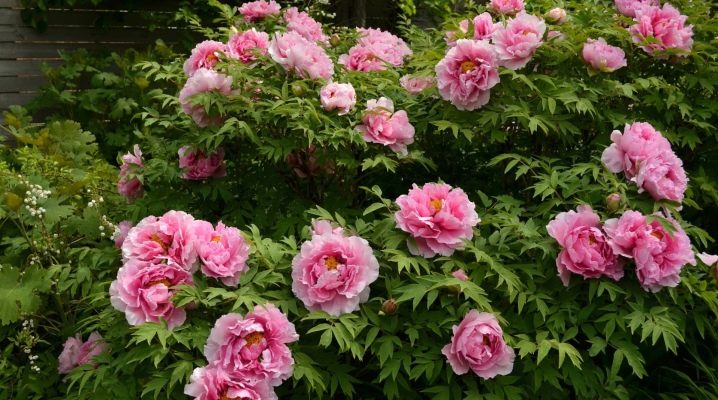
An important place among the favorite garden plants among flower growers is occupied by peonies "Raspberry". This type leaves few people indifferent - he is so graceful and good.
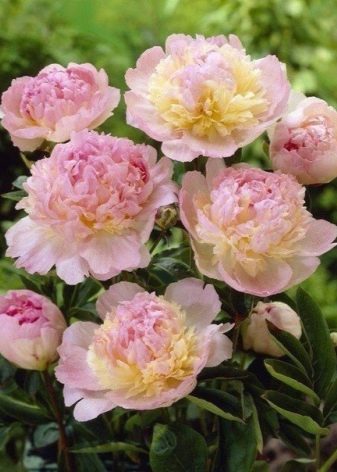
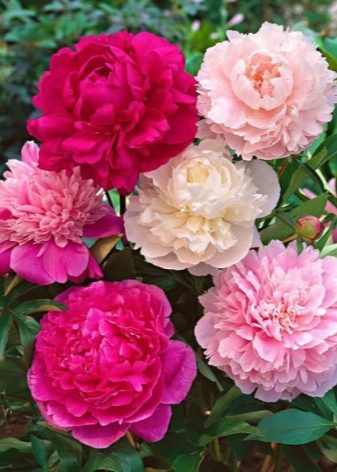
Varieties
Varieties and varieties of flowers are extremely important for any gardener to know. Let's consider examples of some varieties.
Raspberry Sunday
It is customary to refer the "Raspberry Sunday" peony to the milky-flowered group. The plant is no less beautiful than its tree-like counterparts. Particularly complex care is not required. The growth is rapid. In many ways, the peony owes developed root system.
The height of the stems is up to 1 m, their strength is moderately high. The leaves are narrow and medium-sized. Flowering starts early. At the same time, flowers are formed that resemble scattered large caps; their diameter is up to 0.18 m.
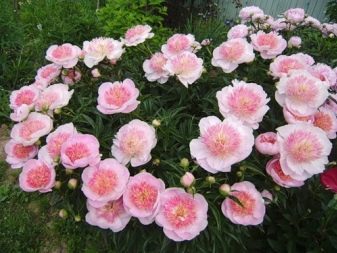
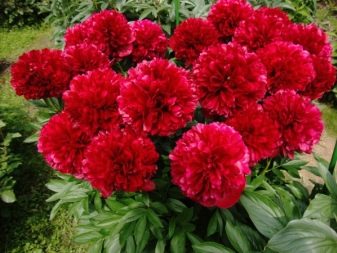
The development of petals with different textures is possible:
- semi-double;
- single;
- terry.
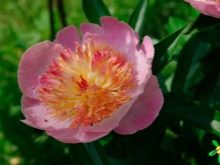
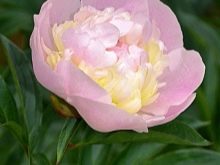
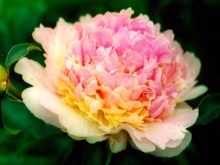
The descriptions indicate a wide variety of colors. There are also white peonies "Raspberry", and bright pink specimens. Even from the photo, it is easy to imagine how elegant they look. Occasionally, red, yellow flowers can be found. A terry bomb-shaped peony (an example of which is the Raspberry Sunday) can look attractive all summer long.
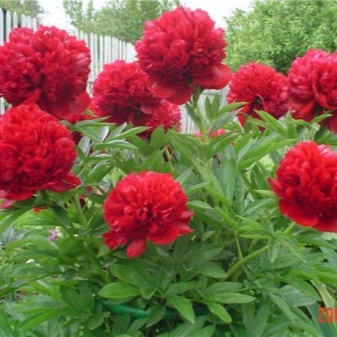
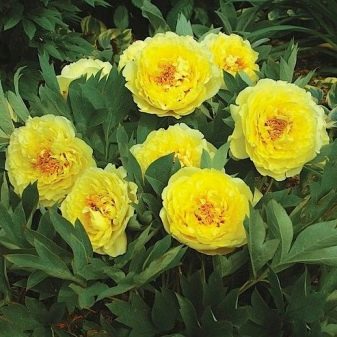
The culture forms fleshy roots similar to tubers. The foliage is dissected. The doubleness of the flowers reaches a large value. The name of the plant species - bomb-shaped peony - is given because of the magnificent appearance of the blossoming flower. The color is quite different.
Raspberry charm
"Raspberry charm" (full name - "Red charm") is highly appreciated by Russian flower growers. The plant forms very large red flowers. Even a very bright sun does not lead to a loss of brightness. The ball in diameter can reach 0.25 m. The stems are strong enough - they do not bend, even if a powerful flower cap is formed.
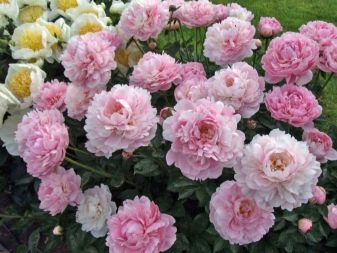
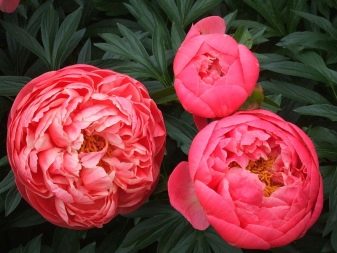
Raspberry ice
This peony of the versatile group is also noteworthy. Its main characteristics:
- blooms in medium terms;
- forms wide petals of the lower tier;
- grows up to 1 m;
- is resistant;
- outwardly handsome;
- fragrant.
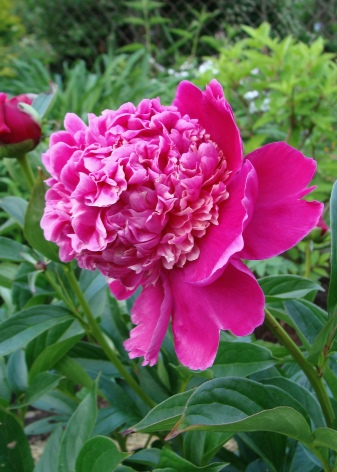
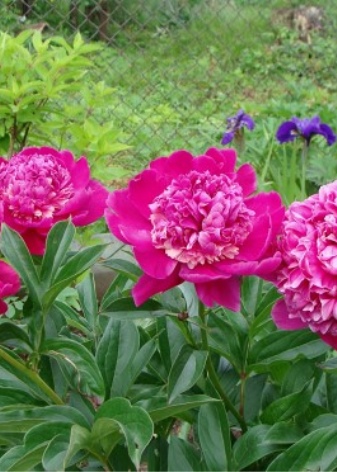
"Gloing Raspberry Rose" - another peony from the bomb group. Its smell is weak. The height of the bush is 0.9-1 m. There are flowers of 3 different tones at the same time.
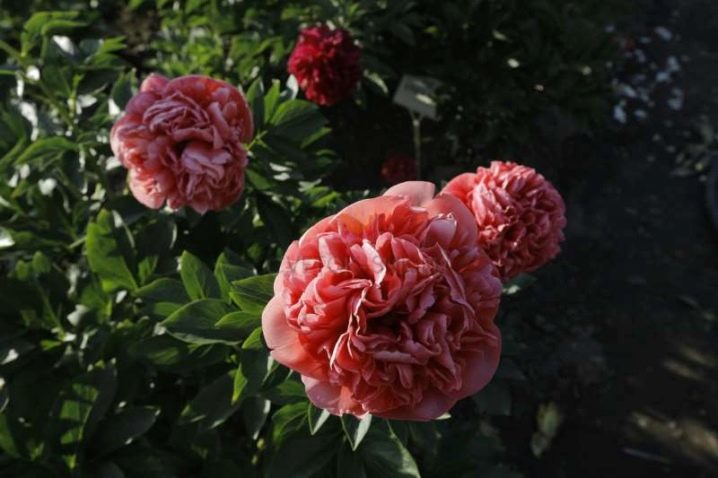
Planting, care, design
Modern varieties of peonies are durable. They can grow for many years without any transplants. Both winter frosts and frosts in autumn or spring are very well tolerated by them. You can expect the appearance of the characteristic features of a particular variety in the second or third year.
In the second month of autumn, it is recommended to cut off the stems. They retain only 0.02 m above the kidneys.
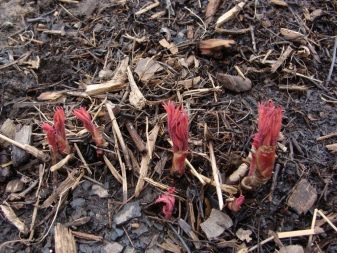
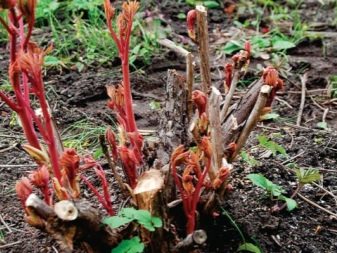
As winter approaches, light cover of the root system with peat is required. Important: for adult peonies, this measure of protection is unnecessary. "Raspberry" is a thermophilic flower for which sunny places are important.
The soil must also be evaluated: if it is heavy and dense, then such a place will not work. To improve the characteristics of the soil, humus or peat is used before planting.
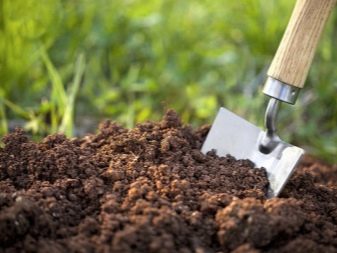
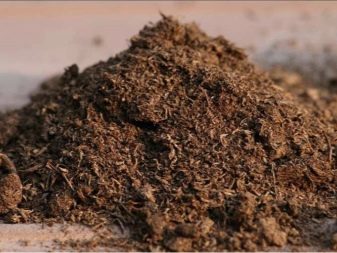
It is absolutely impossible to allow the buds to sink into the ground - they should be placed at least 0.03 m above the surface.
Peonies appreciate high-quality drainage, which means that the holes should be filled with abundant gravel or other suitable material. Peony transplantation is carried out strictly according to special rules:
- dig up plants only when it is warm and dry;
- dig strictly vertically;
- the shovel is removed from the root by 0.2 m;
- they dig in the bushes strictly in a circle;
- do not pull the plant by the leaves;
- pull out the root itself as gently as possible for the peony.
Frost resistance of "Raspberry" peonies is high enough to survive in winter even without auxiliary shelters. But it is still advisable to cut the shrub and cover it before the cold weather begins. Flowering occurs annually. At the same time, the timing of flowering can vary greatly. The earliest peonies will bloom in the last decade of May, and the latest in the second half of June.
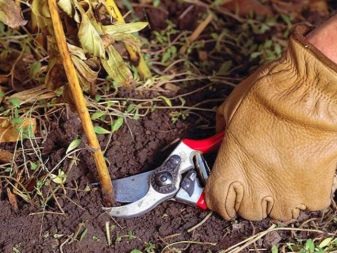
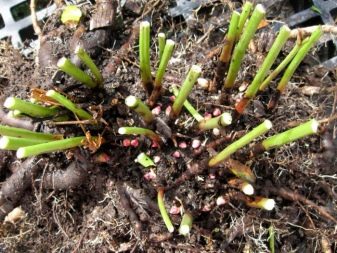
Returning to the selection of the place, it should be mentioned about the optimal acidity (from 6 to 6.6 on the pH scale). Improvement of clayey soil is achieved through peat, sand or humus. Purely sandy soil is improved, on the contrary, with a mixture of peat and humus, already with a clay mass. It is necessary to wait for soil subsidence before planting for 6-7 days. Rhizomes should be lightly tamped when planting.
The division and transplantation of peonies is carried out mainly in August or September. A common mistake is replanting the plant in the spring. The specific terms of work depend on the climatic parameters of the area.
In any case, after planting a peony, you need to water it abundantly. Organic or complex fertilizers are required to be applied during budding.
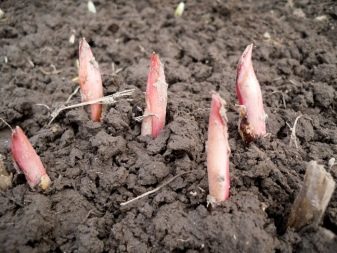
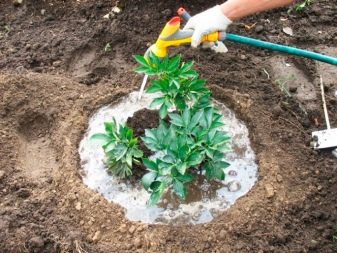
You cannot feed peonies during flowering.
The best fertilization method is water solutions.
Planting flowers in one line will allow you to delimit the territory into zones. Peonies are also suitable for emphasizing certain objects. They can also be used for the second tier between low and tall crops, in mixborders, next to clematis and roses.
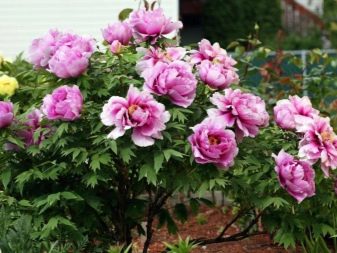
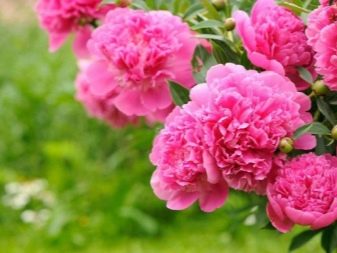
Reproduction
Basically, they try to propagate peonies by dividing the roots. The reason for this preference is the ease of manipulation. The procedure is carried out in the last days of August or at the beginning of September. It is necessary to isolate single buds (together with parts of the rhizomes). Then they get rid of dead plants. All cuts are sprinkled with wood ash, otherwise the roots will be attacked by pests.
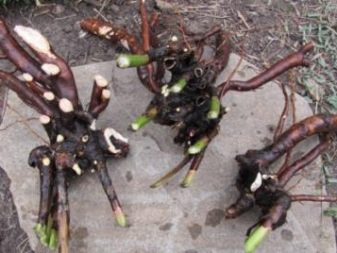
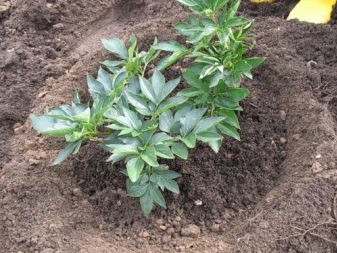
Important: in each isolated part, 2 or 3 growth buds must be left. An adult peony bush (5 years old) makes it possible to prepare 3 or 4 sprouts for planting.
Pests and diseases
Peonies "Raspberry", despite their unpretentiousness, are susceptible to a number of diseases.
- When infected gray mold the entire copy suffers. After the formation of a gray bloom, the bush dries up. Full opening of the buds is impossible. Cold weather and high humidity contribute to gray mold infestation.
To reduce the likelihood of infection, unnecessary stems are removed. An additional preventive measure is fungicide treatment.
- About the appearance rust evidenced by yellow spots covering the leaves. Soon, these leaves will curl and dry out one by one. To combat the disease, spraying with special preparations is used.
To simplify the treatment, it is necessary to cut off the affected fragments of the peony. They get rid of them radically: it is necessary not only to remove the diseased parts from the plant, but also to burn them. In case of rust infection, treatment is carried out immediately. Its effectiveness is high, but early start saves time.
You should also beware ring mosaic.
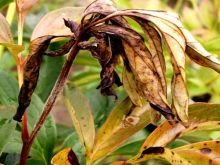
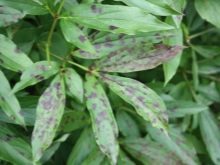
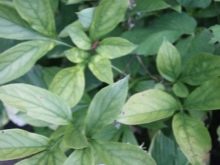
For a video on how to plant peonies correctly, see below.





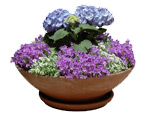
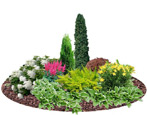
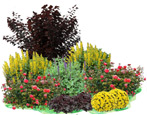


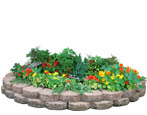


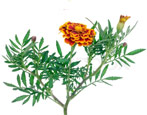


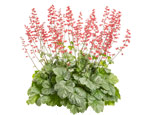






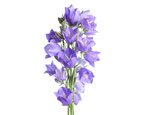
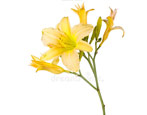

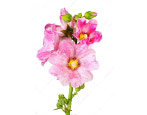



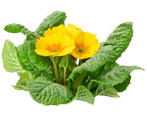
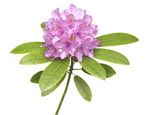



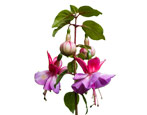
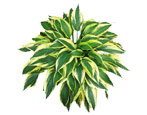


































































The comment was sent successfully.